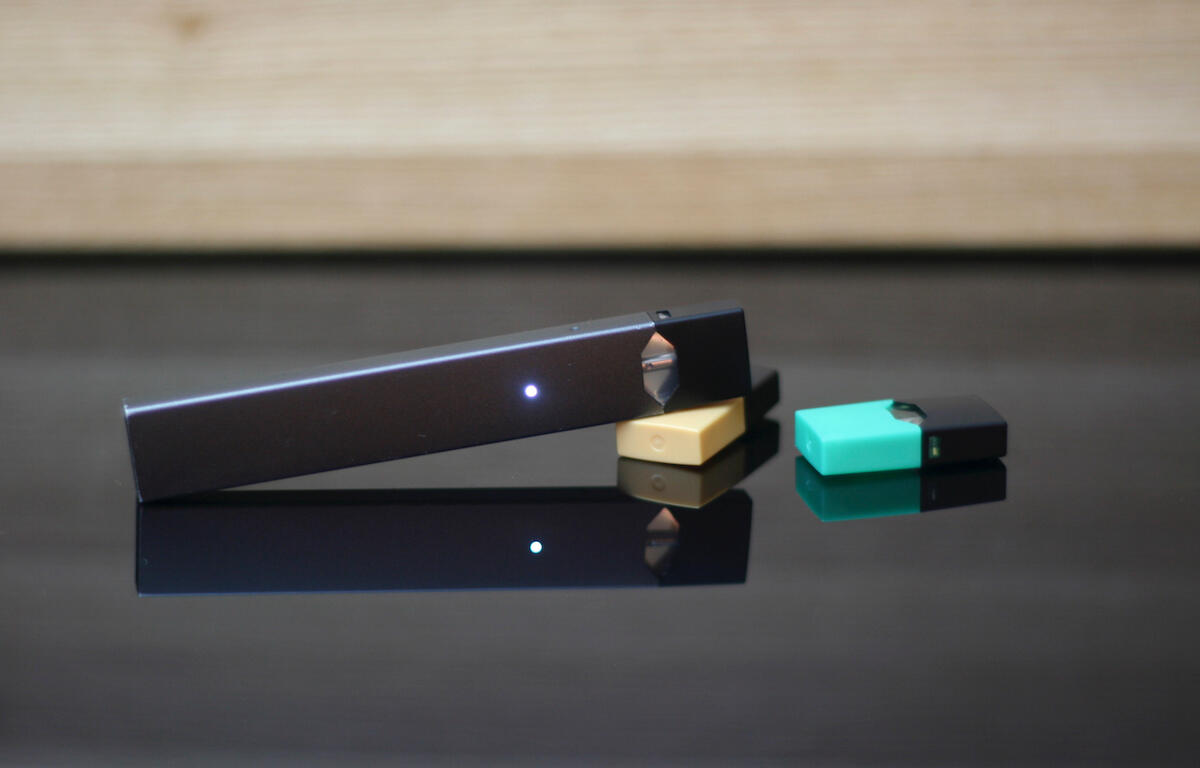CLARKSVILLE, TN (CLARKSVILLE NOW) – The Clarksville-Montgomery County School System announced Tuesday it will join 700 other school districts across the nation in a mass action lawsuit against Juul Labs, Inc., a nicotine vape manufacturer after the rise of vaping in local schools has increased.
The number of students vaping in local schools has been on the rise this year, and has become such an issue that it has led some schools in the district to install smart vape sensors in bathrooms.
Suing Juul
The announcement was made Tuesday evening at the School Board study session by Carol Joiner, the district’s general counsel.
She said that the main reason for CMCSS’s executive decision to join this mass action litigation was to remedy the issues caused by the increased usage of vapes in Clarksville-Montgomery County schools.
“We are exploring all opportunities to be able to have the resources to fight that, and one of the things we came across was this mass action against a vaping manufacturer and Frantz Law Group is the firm that is handling it and that we have signed on to do this mass litigation at no cost to the district, but we wanted him (William Shinoff) to be able to explain to the board how that mass action will occur,” Joiner said.
William Shinoff, an attorney with the Frantz Law Group based in California who will be representing the district against Juul, then presented information about the action to the School Board.
Shinoff was formerly a school district attorney, and represented the majority of the districts in southern California for almost 10 years.
“During the end of my tenure, I saw the issue across the board with almost all of my school district clients struggling dealing with the vape epidemic that we were seeing,” Shinoff said. “As of today, I represent over 700 school districts in 32 states in this case.”
The district’s case, along with the hundreds of others, is being brought under the public nuisance law, which Shinoff said provides public entities – such as school systems – the right to bring cases against corporations that are causing harm to the community.
Shinoff said the law allows these public entities to seek financial compensation for fixing the issues or for reimbursement on money spent dealing with the harm said corporations have caused already.
“What we’ve seen and what we’ve analyzed is the public entity that’s been hit the most by this vaping epidemic has been the schools because we’ve seen the numbers increase, and the numbers keep increasing,” Shinoff continued.
Not a class action
While there are several hundred school districts nationwide that are taking part in this legal action, Shinoff stressed that the lawsuit is not a class action, but is instead a mass action litigation.
“This is not a class action, so this is not one school district representing all the school districts across the country. Every school district that’s involved in this case has their own case on file, and just to note there is a significant number of school districts in the state of Tennessee that have been involved with this case almost for two years now,” Shinoff told the board.
The mass action is against two corporations: Juul Labs, Inc. – which Shinoff called one of the largest vaping manufacturers in the world – and Altria, which owns tobacco companies like Marlboro.
“At the time this case started, they (Juul Labs) represented about 87% of the vaping market at that time. Their market share has dwindled due to what’s going on in this litigation and what’s become public of what’s happened,” Shinoff said.
Shinoff added that Altria invested $13.5 billion into Juul, which is why they too are being named in the mass action.
“And they now are partners together in this vaping venture, and what we’re focused on in this case is these companies’ conduct of intentionally marketing their products to children just as big tobacco did years ago,” Shinoff said.
Shinoff then accused the companies of using the same marketing tactics that tobacco companies did decades ago, resulting in a new generation of nicotine users.
“The concept was you addict someone at a young age, you create a customer for life, and that’s what we’ve seen,” Shinoff said. “If you look at this, this is tobacco litigation 2.0.”
Solutions
While the district will not owe the Frantz Law Group anything if the lawsuit is not won, the law firm will take 25% of the earnings as compensation, Shinoff said.
If the district wins its lawsuit, any funds received will be used to purchase new vape smart sensors for bathrooms and classrooms in school buildings. Shinoff suggested the funds could be used for hiring additional school resource officers or more school staff to monitor students better.
“Also, we understand that this isn’t something you can fix overnight, so our model of what we’re seeking is to try and get at least five to 10 years worth of funds to go cover these expenses,” Shinoff continued.
Shinoff said that this long-term plan would include helping schools hire counselors with expertise in addiction for additional support, and securing funding for education about the dangers of vaping.
“I speak across the country on this to students. Out of every 10 kids, nine out of 10 of them are going to tell me that it’s flavored vapor – it’s nothing harmful – and that’s is a misconception of what is going on.”


